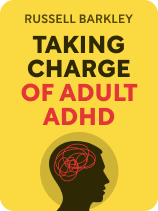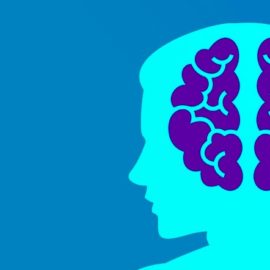

This article is an excerpt from the Shortform book guide to "Taking Charge of Adult ADHD" by Russell Barkley. Shortform has the world's best summaries and analyses of books you should be reading.
Like this article? Sign up for a free trial here.
Is ADHD different in adults than children? What are the symptoms of ADHD in adults?
ADHD isn’t a diagnosis that’s restricted to childhood. Many adults struggle with ADHD and its symptoms, although they may manifest differently.
Here are the signs of adult ADHD to look out for.
The Symptoms of Adult ADHD
The common, public image of ADHD is that of a hyperactive, defiant child, but that is a vast oversimplification that ignores the deeper issues at work that follow people with ADHD into their adult lives. So, what are the symptoms of ADHD in adults? Barkley writes that adults with ADHD struggle with impaired cognitive functions that affect how their brains process information and regulate their emotions. This impairment takes the form of an inability to inhibit your actions, think beyond the present moment, and envision the likely consequences of any course of action you may take.
(Shortform note: The stereotypical childhood associations of ADHD that Barkley describes have roots in how the condition was discovered. Pediatricians first identified ADHD in children during the early 1900s, which they dubbed a “hyperkinetic reaction of childhood.” ADHD’s symptoms often become more apparent in structured educational settings, making it easier to identify in school, and researchers’ continual focus on children contributes to its perception as an impairment that only impacts the young. It wasn’t until 1994 that the American Psychological Association recognized ADHD as a condition that persists into adulthood.)
1. Lack of Impulse Control
The most clear-cut symptom of adult ADHD is the inability to consciously avoid impulsive actions or to know how to appropriately respond to situations—for example, knowing when not to speak during a conversation when your impulse may be to interrupt someone else. Barkley explains this symptom’s neurological cause, how impulsive behavior can overwhelm your life, and how impulsivity affects your emotions.
In people without ADHD, the brain responds to external stimuli, such as phone notifications or blaring car horns, by pausing for a moment to generate a response, gauging what level of action to take, or ignoring the stimulus entirely. However, Barkley explains that in ADHD, the parts of your brain in charge of the “stop, think, then act” cycle are starved of the neurotransmitters they need to properly function. What happens, then, is that every stimulus leads to immediate action—such as checking your phone or steering out of traffic to see why horns are honking.
In everyday life, ADHD’s stimulus-to-action cycle manifests as impulsive behavior and a lack of inhibitions. Your brain literally can’t stop itself. At work, you’ll find it hard to complete any task when every potential distraction around you demands an immediate response. In social settings, you may talk excessively, interrupt other people, or go off on unrelated tangents because you can’t self-regulate your speech. When shopping, you probably spend too much on impulse buys because your brain can’t interrupt the signal between seeing something nice and sticking it in your cart. When compounded, all these impulsive acts can snowball into a debilitating torrent of out-of-control, self-sabotaging behavior.
In tandem with ADHD’s effects on controlling impulsive actions, it can also impair your ability to regulate emotions. Barkley explains that when your brain isn’t able to pause and process feelings, they come out as impulsive outbursts. This often leads to inconsistent emotional responses, which may be inappropriate or exaggerated in certain situations. For example, you might feel intensely angry or sad in response to a minor inconvenience, possibly expressing your exasperation by yelling or throwing objects. Likewise, you’ll sometimes laugh harder at a joke that others perceive as only mildly amusing. When expressing emotions appropriately is a challenge, the results are communication breakdowns and difficulty connecting to others.
2. Poor Time-Sense
Coupled with the lack of immediate self-control that ADHD causes, you may also have an impaired relationship with time. Barkley discusses how ADHD affects your sense of the present, the past, and the future, as well as how that can impact your everyday life.
Barkley argues that an important function of the “stop, think, then act” mental process is that it lets you build a mental image of the present, compare it to memories of the past, and make best-guess predictions of the future. When ADHD interrupts that process, you have difficulty judging the passage of time, and because you’re not aware of time, you can’t consciously manage it. You have problems estimating how much time things will take, so you’ll consistently underestimate how much time you need. You’ll miss deadlines and frequently run late for appointments. The people in your life may think you’re unreliable, when really you’re simply lacking a sense of time that most other people take for granted.
ADHD doesn’t just impair your ability to measure time passing in the present—it also impacts your perception of time on a larger scale. Barkley states that because of ADHD, your recall of past events may be impaired, as well as your ability to envision the future. You may have trouble remembering specific details of your life, such as important conversations or the results of past behaviors. This becomes a struggle when you need to plan long-term projects or make decisions based on future consequences: When you can’t remember your experiences, you can’t reflect on and learn from them, and if you find it hard to think about the future, you can’t consciously plan for it.
Though it’s not the most visible ADHD symptom, lacking a sense of time is just as disabling as being too impulsive and not thinking through your actions. Barkley writes that you may find it nearly impossible to make plans, adhere to schedules, or follow through with set agendas. Suppose you have to finish a specific task at work, go to the dentist, and pick your child up from school, all in the same afternoon. Accomplishing any one of these things requires having a sense of how much time it will take, how it slots into the rest of your schedule, and how much buffer time to leave in between. Trying to keep track of all these things at once requires a cognitive model of time that ADHD undermines at every step of the way.
3. Impaired Higher Functions
Weakened inhibitions, a spotty memory, and an impaired sense of time aren’t ADHD’s only symptoms. Barkley lists several other mental functions that ADHD hinders in adults. These include the “inner voice” that lets you motivate yourself and work through problems, the ability to encode lessons learned into language, and the ability to learn from reading and observation.
Barkley writes that adults with ADHD have trouble engaging in internal dialogue. Self-talk plays a vital role in problem-solving, focused contemplation, and creating internal motivations for yourself. However, your tendency to react to every distraction makes it hard to think through options, evaluate outcomes, or convince yourself to engage in productive behaviors that won’t provide an immediate reward. If you can’t maintain constructive self-talk, you can’t consciously assess the consequences of different decisions. If you can’t verbally motivate yourself, you’ll struggle to start or complete tasks that require sustained effort and concentration. Instead, your inner voice may be like your outer voice, constantly flitting from one tangent to the next.
Just as ADHD impairs your memory of events, as we discussed in the previous section, ADHD weakens your ability to remember and organize written and verbal information, such as driving directions, a list of instructions, or important details like how often to take medications. This is a problem, since if you can’t remember information, you can’t consciously act on it. Barkley states that adults with ADHD often have a hard time retaining and comprehending information that they read or hear, such as trying to follow the plot of a book or the point a speaker makes in a lecture. ADHD even inhibits your ability to learn vicariously through observation. All of this makes any style of learning problematic for adults with ADHD.

———End of Preview———
Like what you just read? Read the rest of the world's best book summary and analysis of Russell Barkley's "Taking Charge of Adult ADHD" at Shortform.
Here's what you'll find in our full Taking Charge of Adult ADHD summary:
- The various treatment options for ADHD in adults
- How to accept ADHD as a part of your life
- What ADHD can look like in undiagnosed adults






